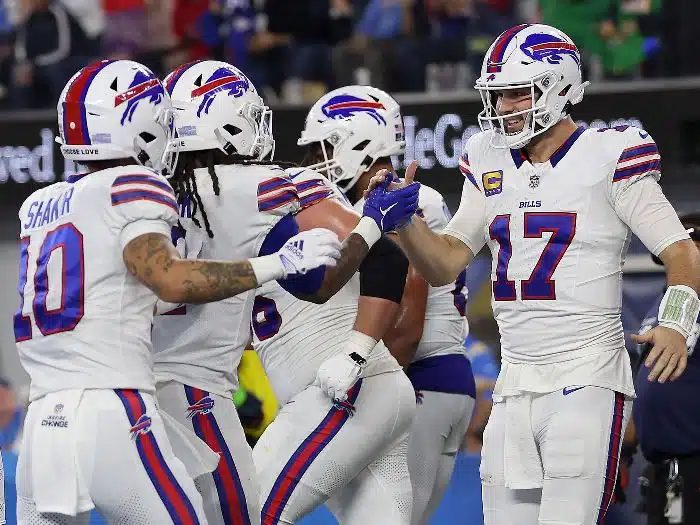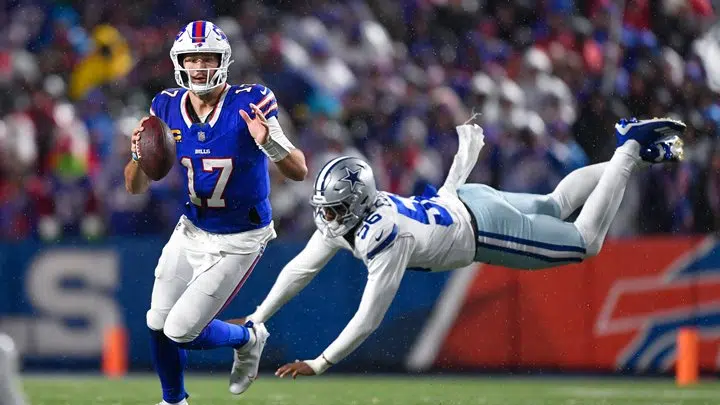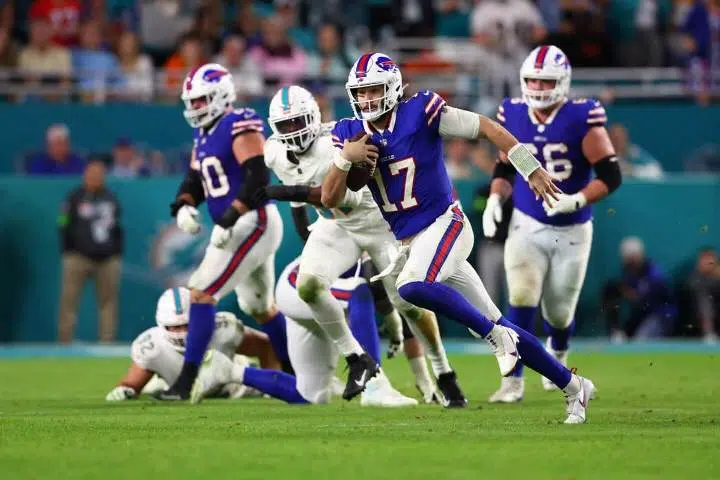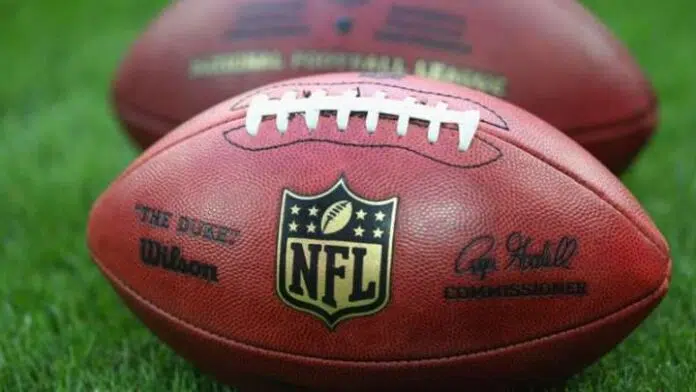Table of Contents
Football enthusiasts everywhere gear up for the best part of the National Football League (NFL) season—the playoffs. Navigating the path to this high-stakes battleground, however, can be quite a maze. Let’s unravel the perplexing system of the NFL playoffs, piece by piece.
The NFL playoffs are essentially a single-elimination tournament that concludes the league’s season. This is where teams battle it out to settle the final, most anticipated score—the Super Bowl.
The main components of the NFL playoffs consist of 14 teams – Seven teams from each of the two conferences (NFC and AFC) qualify for the playoffs. Then it involves six rounds – Over six weeks, six rounds of games enforce the brutal ‘win or go home’ policy. Then the Divisional Round: The top seeds in each conference have a bye week during the wildcard round, moving straight to the divisional round.
So, why is there so much fuss about the playoffs? Because it leads to the most-viewed American television event, the Super Bowl. That said, the path to this prominence can incite some serious head-scratching.
Who makes the NFL playoffs?

The NFL is divided into two conferences: the American Football Conference (AFC) and the National Football Conference (NFC). While each conference hosts 16 teams, only the top 7 from each find their way to the playoffs. But who are these lucky ones?
Division Leaders
Division leaders are the most straightforward path to the playoffs, which remains through the division. Each conference consists of four divisions: North, South, East, and West. Winning a division means the team that finishes the regular season with the best record in each division automatically advances to the playoffs.
Wild Cards
Wild Cards: The 14-team bracket permits the addition of three wild card teams from each conference.This is open to the remaining teams after the division winners have been settled. The teams with the next three best records in their conference snatch this prize.
Breaking Down the Bracket
Understanding the components is key, but putting them together into a coherent tournament structure is where the true test lies. That’s where the playoff bracket enters the frame.”The NFL playoffs are where the men are separated from the boys, and the Playoff Bracket is the roadmap to the Super Bowl.”
Seeding and Byes
The playoff teams are given a seed from 1–7, and a single-elimination bracket determines their fate. The top seed in each conference, traditionally the one with the best regular-season record, earns the first-round bye. These teams skip the chaotic wildcard round, advancing directly to the divisional round. The Wild Card round marks the official beginning of the NFL playoffs and The Wild Card round features the 2nd seeded team playing against the 7th, the 3rd versus the 6th, and the 4th versus the 5th. Once the debris from this battle settles, we move on to the Divisional Round and eventually to the Super Bowl.
How Does the Playoff Bracket Work?

In the world of sports, few things create as much excitement, speculation, and head-scratching as playoff tournaments. At the center of it all, lies the ubiquitous, yet often misunderstood, playoff bracket. So how exactly does it operate? Let’s delve into this intriguing topic and break down the mystery of playoff brackets one piece at a time.
A playoff bracket is essentially an illustrated tree diagram that outlines the path that teams or players must navigate to reach the championship game or match. Different sporting tournaments use various forms of brackets – single elimination, double elimination, round-robin, and more.
Single Elimination Bracket
In a single elimination bracket; Each participant competes in one match per round and losers are eliminated from the tournament. While winners progress to the next round, eventually leading to a championship match between the last two standing participants.
Double elimination bracket
Double elimination brackets offer each participant two chances before elimination. This means; after losing the first match, a participant enters the “loser’s bracket”. If they lose again, they’re out. But, if they win, they continue in the loser’s bracket until a final face-off with the winner’s bracket leader. This creates an opportunity for dramatic comebacks, making double-elimination tournaments especially thrilling.
Round-robin brackets
In round-robin brackets, every participant plays a match with all other contestants. The one with the most victories at the end of the rounds is declared the winner.
While the structure of a playoff bracket might look straightforward on paper, some key factors can dramatically alter the landscape within these tournaments. Teams or participants are often ‘seeded’ based on their season performance. The top-seeded team often plays the lowest-seeded team, and so forth. The purpose is to give the best-performing teams an edge by matching them against theoretically weaker opponents. The team with a better seeding often enjoys the ‘home field advantage’ in many sports, playing more games at home than away which can be a critical factor, particularly in high-pressure playoff scenarios.
Some playoffs, like the NFL, include ‘wildcard’ entries. These are lower-seeded teams that have another chance to make it into the playoff bracket through additional matches.
“In the sports world, nothing is certain until the final whistle.”
Despite all the calculations and odds, what makes playoff brackets magnetic is their inherent unpredictability. The highest-seeded team may go up against the lowest-seeded team, but upsets happen – the underdog can triumph. It’s this blend of strategy, skill, and pure chance that makes watching playoff games an exciting roller-coaster ride.
When Are the NFL Playoffs?

For the uninitiated, the playoffs are a post-season series of games designed to determine the champion of the National Football League (NFL). However, before diving further into the nitty-gritty of NFL playoffs, it’s essential to first understand its basic structure.
Regular Season and Playoffs
NFL is divided into two main segments: the regular season and the playoffs. Firstly, the regular season runs from early September to late December, featuring each of the 32 teams playing 17 games. Secondly, following the regular season, the playoffs begin, usually starting in the first week of January.
In essence, the playoffs are a series of elimination rounds for the top teams to compete. Six teams from each conference (a total of 12 teams) vie for the ultimate NFL prize – the Super Bowl.
While the exact dates of each NFL playoff game can change each year, they generally fall within the same timeframe, spanning from January to early February. Here’s a high-level view of the typical NFL playoff timeline:
Wildcard Weekend (First Week of January)
The six-game weekend marks the beginning of the NFL playoffs. The wildcard teams and the 3rd and 4th seed division winners compete in this round.
Divisional Round (Second Week of January):
The winners of the wildcard weekend go head-to-head with the 1st and 2nd seed division winners that had a first-round bye.
Conference Championships (Third week of January):
Winners from the divisional round compete to determine who will represent each conference at the Super Bowl. Super Bowl (First Sunday in February): The grand finale where the two conference champions compete to be crowned as the NFL Champions.
It’s not just about the games; it’s the energy, the anticipation, and the exhilarating thrill that make the NFL playoffs a spectacle to behold. Whether you’re supporting your favorite team fervently or are there for the love of football, these games will keep you on the edge of your seat, eagerly looking forward to what each new match-up brings.


